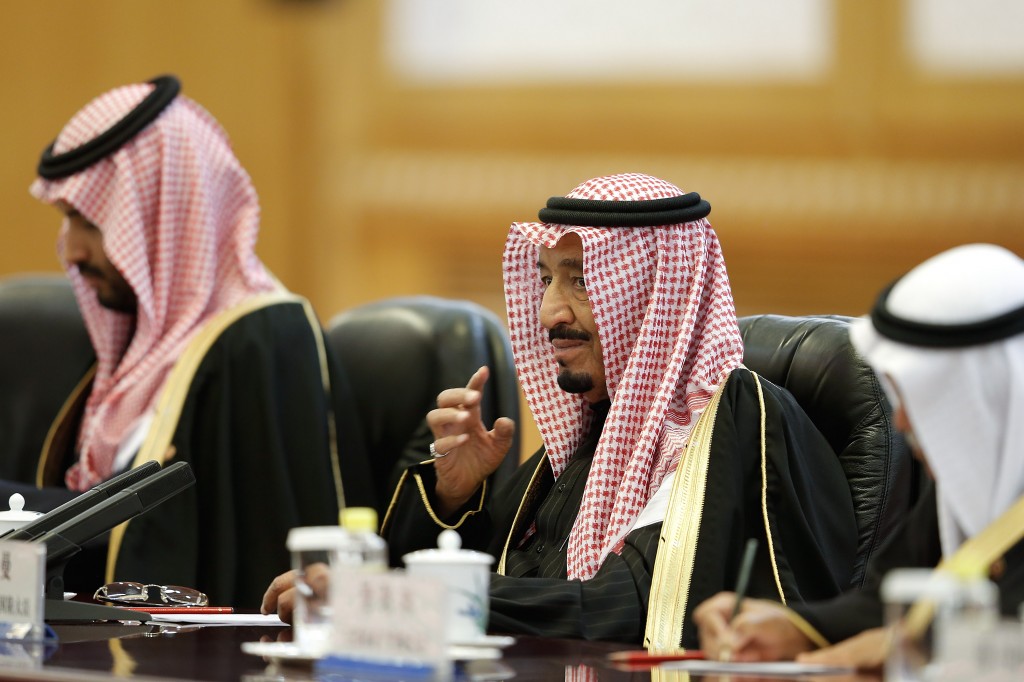
Saudi Crown Prince Salman bin Abdulaziz meets Chinese President Xi Jinping after a welcoming ceremony at the Great Hall of the People on March 13, 2014 in Beijing, China.
In one of the more honest assessments of current Saudi Arabian oil policy, Rice University’s Jim Krane said there are several plausible reasons behind the Saudis’ apparently sanguine approach to falling global oil prices, but only a few within the Kingdom really know. “If you’re somebody who looks at geopolitics and energy, you could come up with any number of ways or any number of reasons why the Saudis are not doing what they would usually do,” says Krane. “There [are] lots of good reasons for them to keep on producing, but exactly why they’re doing it probably only a few dozen people in Saudi Arabia know that,” he adds. [NPR]
Municipalities located in the heart of the Texas oil boom are not overly concerned about recent oil price declines. “Busts famously follow booms, but economists and industry experts say towns atop Texas’ biggest drilling zones probably aren’t looking at the beginning of a bust – at least not yet. In the Permian Basin and Eagle Ford, operators have poured billions of dollars into pipelines and other infrastructure, so they’re not likely to walk away unless things get much worse.” [Texas Tribune]
Fossil fuel divestment backers are not saying “I told you so” yet, but some are hinting at that view. Lower oil prices, they say, are forcing companies to reconsider expensive dividend and share buy-back programs, which are some of the things that make oil equities attractive to investors. “If oil prices stay low for a sustained period like during the last recession, the resulting earnings hit could jeopardize those programs, according to Flynn of the Price Futures Group. Those programs are a big reason oil stocks are a staple in investment portfolios.” [Inside Climate News]
